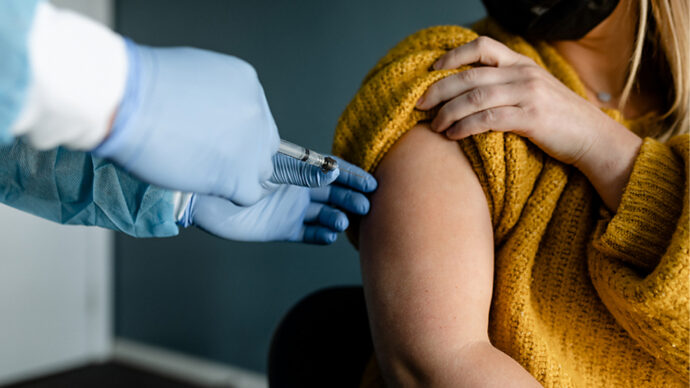
COVID-19 digital immunity passports have been the fodder of recent discussion in the U.S. (Forbes, CNN) and around the world (Schengen Visa Info, BBC News) as countries have tried to reinvigorate travel and tourism industries decimated by the pandemic. The exact form and format—from paper to electronic—as well as scientific basis (e.g. antibody testing versus vaccination status) — is still being debated, but the concept seems to be gaining momentum.
According to Forbes, “As countries ramp up vaccination efforts, in line with reducing social mixing, the hope would be that travel could start again somewhere in the middle–and many people think that immunity passports–a universal document to show proof of vaccination–would be the ideal way to reopen travel to the masses. However, there are concerns over privacy and ethics.
Airline carriers already have ways for travelers to prove health credentials. United Airlines has just launched a Travel Ready Center where passengers upload test documents, which are verified by staff before they can check in. Delta has launched an online tool and American uses the app VeriFly, which confirms the date and type of test and sends a QR code once approved for gate agents to scan, as reported by Condé Nast Traveler.
Other U.S. and worldwide carriers such as JetBlue, Lufthansa, Swiss, United, and Virgin Atlantic use Common Pass, which works in the same way as Verifly. Other carriers such as Emirates and Qatar are using the IATA Travel Pass.
But some companies now demand proof of vaccination before making travel reservations—Saga cruises is the first in the U.K.—a trend that is only just beginning…
On 19 January, in an interview with Portuguese press, the President of the European Union Commission, Ursula von der Leyen, stated that she supported the idea of a common vaccination certificate. It would be established by the EU and issued by member states to every person who has a Covid-19 vaccination.
Greek Prime Minister Kyriakos Mitsotakis was one of the first EU countries to ask for a common document and whilst he said that it shouldn’t be necessary for EU citizens to get vaccinated, only those with one should be allowed to travel and it should be considered a medical requirement, in the same way as people are required a Yellow Fever vaccination before travel to some countries.
Mitsotakis added though that he would like to see the EU pushing forward on this. He noted that whilst the idea of an immunity passport or certificate seems straightforward, he feared the process would take a long time. ‘The lengthy experience we have had on developing a common PLF [Passenger Locator Form] has shown us that there is an urgent need for a high-level EU-wide mobilization to move things forward,’ Mitsotakis said.
Denmark has already announced that it is working on a vaccination certificate, which Danish citizens could obtain after they are vaccinated, to allow them to travel to countries which have mandated vaccination as entry.
The private sector is already moving to fill the demand. A coalition of health and tech groups (including Microsoft and Oracle) are creating an internationally accepted digital health card, which will store information on Covid-19 such as negative tests or proof of vaccination.
It is called The Vaccination Credential Initiative and hopes to get people back to work, education and travel, as reported by The Financial Times.”
To better understand how physicians viewed the potential promise of COVID-19 digital immunity passports, Dr. P. Murali Doraiswamy, Duke University School of Medicine and colleagues, analyzed de-identified data from a survey among 1,000+ Sermo members on the topic. The study revealed that many physicians are skeptical about the benefits of passports.
Of note:
- 52% of doctors did not believe in the utility of immunity passports; 17% were uncertain
- U.S. physicians were significantly more likely to say “No” (60.3%) than both European (47.2%) and ROW doctors (49.5%)
- Older doctors and female doctors were also more likely to say “No.” The skepticism rose as high as 80% among older U.S. female physicians.
Below, Sermo physicians from around the world share their professional insights, perspectives, and opinions on this important topic—in their own words:
“Immunity passports are a double edged sword,” said Dr. Murali Doraiswamy, professor in the departments of Psychiatry and Medicine at Duke. “Facilitating travel is vital for the global economy and wellbeing. But we need to ensure this is based on sound science and does not worsen societal inequities. Our survey provides a reality check for policy makers.”
To explore more insights from the study, check out this report published in the Journal of Health and Social Sciences: “Are we ready for COVID-19’s golden passport? Insights from a global physician survey,” written by P. Murali Doraiswamy, Mohan Chilukuri, Alexandra R. Linares and Katrina A. Bramstedt.
Everyday thousands of Sermo member physicians from diverse backgrounds and experiences exchange knowledge with each other. Sermo is the original medical social network that empowers today’s physicians. Over 1 million fully verified physicians across more than 150 countries come to our platform to talk with peers, participate in paid medical studies, solve challenging patient cases, contribute to the world’s largest database of drug ratings – and enjoy a few laughs along the way.
Interested in more? Check back any time and follow us on Facebook, Twitter, and LinkedIn for the latest and greatest in physician insights.
Are you a physician or healthcare practitioner?
Explore the many benefits of joining Sermo’s medical community and sign up for free today.














